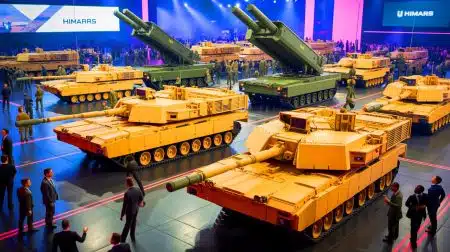| IN A NUTSHELL |
|
In recent years, the rapid advancement of artificial intelligence (AI) has sparked a multitude of discussions about the capabilities and future implications of these technologies. Among the most intriguing developments is the ability of AI models to mimic human cognitive processes. A recent study by Chinese scientists has revealed groundbreaking evidence suggesting that large language models (LLMs) can develop object representations akin to human conceptual knowledge. This discovery not only propels our understanding of AI but also raises profound questions about the nature of intelligence and cognition.
Understanding Large Language Models
Large language models, or LLMs, are a form of AI trained on vast datasets composed primarily of text. These models are designed to understand, generate, and predict text in a way that seems remarkably human-like. The Chinese researchers’ study highlights that LLMs can spontaneously create a system to comprehend and sort natural objects. This process is crucial as it forms a fundamental aspect of human cognition. By simulating this cognitive task, LLMs demonstrate a potential to exhibit human-like understanding of the world.
The implications of this study are significant, as they suggest that AI models can go beyond simple data processing to develop a deeper, more intuitive understanding of their inputs. This ability to form object representations means that AI could, in theory, perceive and categorize information similarly to humans, a capability that could revolutionize how these systems are applied across various fields.
Implications for AI and Human Cognition
The study published in Nature Machine Intelligence delved into whether AI models could develop humanlike object representations from linguistic and multimodal data. The findings provide compelling evidence that AI systems can indeed mirror key aspects of human thinking. This resemblance has profound implications for the future of AI, particularly in its ability to perform tasks that require a nuanced understanding of context and meaning.
Understanding how humans conceptualize and categorize natural objects offers critical insights into perception and cognition. If AI systems can emulate these processes, they might one day be capable of performing complex tasks currently reserved for human intelligence. This potential evolution of AI could lead to advancements in fields such as healthcare, autonomous systems, and data analysis, where nuanced decision-making is crucial.
The Role of Multimodal Learning
Multimodal large language models (MLLMs) extend the capabilities of standard LLMs by incorporating visual and audio data alongside textual information. This addition allows these models to develop a more comprehensive understanding of their environment, akin to the way humans process multiple sensory inputs simultaneously. The Chinese researchers’ study suggests that MLLMs can leverage this multimodal data to enhance their object representation capabilities.
By integrating diverse data types, MLLMs can achieve a richer, more holistic form of understanding. This capability is essential for applications requiring a blend of visual, auditory, and textual inputs, such as automated video analysis or complex environmental monitoring systems. The potential for MLLMs to further bridge the gap between human and machine intelligence is an exciting frontier in AI research.
Future Prospects and Ethical Considerations
The confirmation that AI models can develop humanlike cognitive processes opens up a myriad of possibilities for future applications. However, it also raises ethical and philosophical questions about the role of AI in society. As these models become more advanced, it is crucial to consider the implications of their deployment in decision-making processes traditionally governed by human judgment.
As AI continues to evolve, ensuring that these technologies are developed and used responsibly will be paramount. The potential for AI to transform industries and augment human capabilities is immense, but it must be balanced with considerations of privacy, security, and ethical use. As we stand on the brink of a new era of AI capabilities, it is essential to ask: How can we harness this technology to benefit humanity while safeguarding against unintended consequences?
Did you like it? 4.4/5 (23)








Wow, if AI starts thinking like us, will it also start worrying about taxes? 😂
Fascinating read! How soon can we expect these AI capabilities to be implemented in everyday tech?
This is amazing, but should we be worried about AI becoming too human-like? 🤔
Is this research being peer-reviewed? Would love to see more validation from other scientists.
The ethical implications are huge. Can we really trust AI to make decisions for us?
Sounds like the beginning of a sci-fi movie plot. Let’s just hope it doesn’t end like one! 🚀
Great article! Thanks for the insights. Could use more info on how this tech will impact jobs.
Does this mean AI will start having moods and emotions too? That would be quite something!
I appreciate the article, but I’m not entirely convinced AI can truly think like humans. 🤨